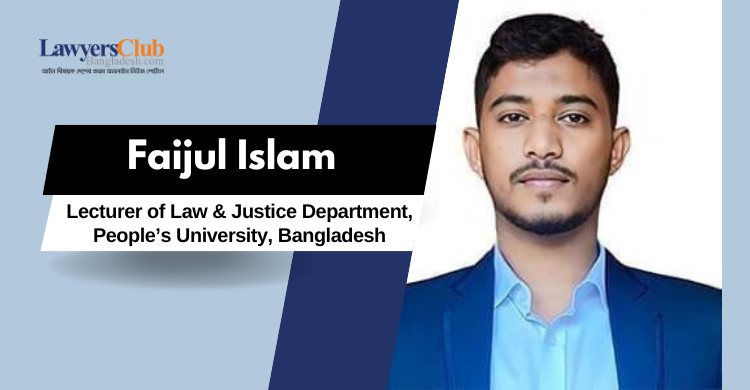The Constitution and Implementation of the Will of the People: Challenges and Possibilities of Democracy

Faijul Islam : Constitution is an expression of the will of the people. Constitution is the supreme law of the country and this constitution gives reality to the will of the people of the country. According to philosopher John Stuart Mill’s theory, he called the greatest happiness of the greatest number of people as positive for society. Often the constitution does not reflect the individual wishes of all people but protects the interests of the greatest number of people.
Again, Article 7 of the constitution. According to the people are said to be the source of all power. But the people will not exercise this power. In the judgment of revision case (Anwar Hossain Chowdhury v. Bangladesh) Article 7 of the Constitution is called the Basic Structure of the Constitution. The judgment in this case also held that Parliament is the framer of the Constitution and all powers are derived from Article 7 and Parliament cannot amend this Article. (ASM Mahmudul Haque, Constitution of Bangladesh and relevant discussions, Sufi Prakashani/2010, p. 15.)
Basically, the people own this power on behalf of the people. The people exercise this power through the right to vote. The exercise of these powers will be decided by the people through direct vote on who will be entrusted with the governance of the central and local governments and the elected representatives of the people will govern the country. But do those who are elected unopposed really show the power of the people? The answer is if the people cannot elect their representatives by voting; If the voter goes to the center and sees that his vote has been cast; If there are no more than one candidate in a seat, MP, Chairman, Mayor can be elected unopposed, then what is the value of people’s vote or where is the application of people’s absolute power?
There is a loophole in the word “people’s rule”. Time cannot choose. But does the person who is chosen reflect the unity of all people? The answer is that it is not possible at all. The representatives of the people are actually subordinate to the government elected by the people, not the people.It will be easy for us to understand if we look at the article 70 of Bangladesh constitution. A representative of a specific area will willfully represent the peoples of a certain area by doing something in favor of them. No, the clear expression of the will of the people that it speaks of fails. This is the biggest pitfall of democracy.
Democracy speaks of rights as long as the interests of the poor are protected. That is why Aristotle called this evasion of good fortune with the people as the rule of fools. That is why political philosophers have recognized the rights to protect interests rather than numbers to protect the interests of the people.Muscle power is applied based on numbers, hegemony is established but the willful expression of the poor people of the lower class is disturbed. After the last 5th, we have seen more examples of bad reforms in the name of reforms. If all parties come to power in this country, they think that the lust for power will surround them for the rest of their lives.
Mahmoud Darwish, a famous Palestinian poet and protester, expressed the will of the people in poetry, “When my back is against the wall, the meat of the occupier will be my food, his blood will be my drink. Power should be left to the will of the people where their best interests are protected.”
Sociologist Andrea de Mysore explained thus, “Mandate can be changed in different situations for the time being to uplift the peoples will. I solemnly espouse the people’s mandate but for saving the rights which ever directly enhance capacity to elect his representatives in the contemporary voting system.”
The constitution should be for the protection of the people’s interests but should not be such that it reflects the wishes of the majority of people but does not protect the interests of the majority.
Author Faijul Islam is a Lecturer of Law & Justice Department at People’s University, Bangladesh.

